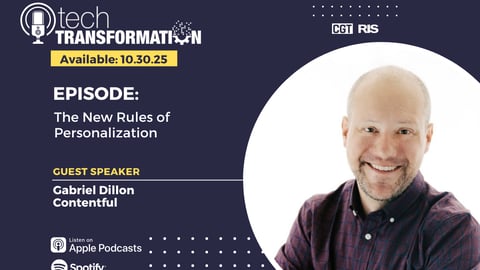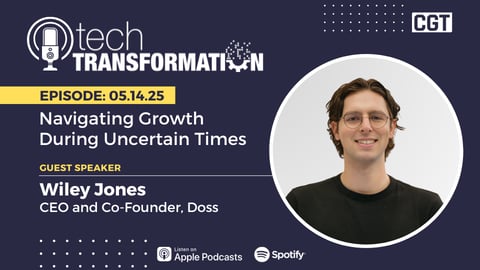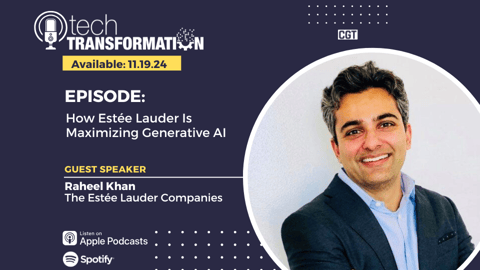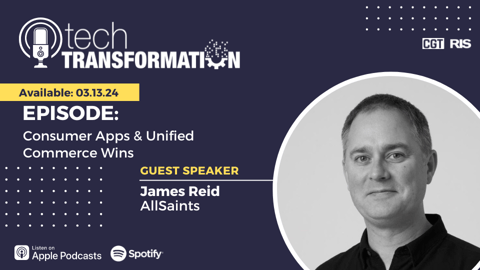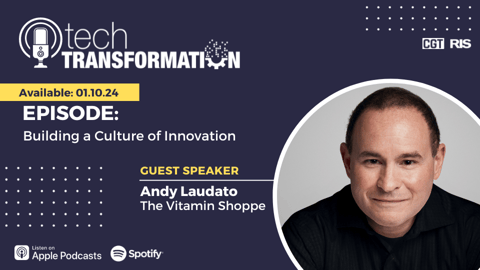Tech Transformation Podcast: Molson Coors’ Cloud Journey With Lindsay Winn and Ramki Krishnamoorthy
Molson Coors is evolving from an alcohol beverage company to a beverage company, and this has meant transforming its business, its technology, and its ways of working. In this episode of Tech Transformation, we’re talking with Lindsay Winn, VP, commercial IT business partner, and Ramki Krishnamoorthy, global head of enterprise architecture, about what prompted the need for all of this change and to get a candid look at how it’s going.
We dig into what it’s like measuring success in new ways of working and what we can learn from our missteps. We also get into the weeds a bit to talk about cloud architecture and some of the other considerations they’re taking into account.
Listen to learn:
- How Molson Coors’ digital transformation is supporting its business transformation
- What prompted the need for change
- How this relates to its cloud transformation program
- Where they got started
- The architectural considerations that were taken into account
- How they built their business case to get stakeholder alignment
- How they’re measuring success
- What their post-cloud transformation future looks like
- The Molson Coors product that should be on every Thanksgiving table
Subscribe
Do you have a question for our guests or an idea for an episode? Leave us a message, and we'll respond on a future episode or contact you directly!
Excerpts
Winn on what prompted the need for all this change: “At the highest level, when you look at a company like Molson Coors, we have been around since the 1800s. And we've been making beer since the 1800s. I was recently at a conference where they said, ‘If you're a company that's that old, you didn't design any of your processes; you evolved into them, right?’ So these things kind of twist and turn and go all the way, and then they are the way they are, and people haven't gotten around to questioning it. ‘Well, this is just the way we do distributor reimbursements.’ Or, ‘This is just the way that we do incentives.’
“And if you ask people, ‘Well, what would make it better? What do you want?’ They would tell you, ‘Oh, you know, what, in this screen, in this drop-down, can you just add this value for this thing?’ And they’ll suggest this incremental improvement, because they take the process as a given.
“So sometimes when the technologists come in the room, and we say, ‘Yeah, but guys, all the distributor reps have a smartphone in their pocket now. And we know where they're standing. Why would we even have a drop-down? We know what store they're in.’ And they get freaked out, and they can't believe it's possible.
"So I think the challenge for us is, one piece of it, is getting people to think like a modern digitally native company, when in fact, we're not, right? And we're very proud of our history. And we're very proud of all of the products that we've made the same way for hundreds of years. So how do you preserve that pride and that culture and that ethos of the company while also saying, ‘Yeah, cool, but we're going to completely blow up that process and start over again, because we can, and we should.’"
Krishnamoorthy on how this relates to their cloud transformation program: “In order to meet our transformation objectives, it's an absolute priority for us to reinvent our set of core capabilities. And that's almost instrumental for us to keep up with the rapid pace of change. And the cloud allows that.
“There are many reasons. If you look at the speed of how quickly you can make decisions and enable your accelerated go-to-market strategy — that's a main ingredient. Agility: Standing up capabilities in a much timely manner, and not waiting for hardware shipments and the disruptions that's going on in the supply chain today. That's no secret. The scale: The elasticity of the cloud just supports our operation demand. We don't have to buy a fixed commodity, where it's just running on 100% horsepower just for 30 minutes a day. We are able to leverage some of the capabilities to optimize peak loads, and that allows us to also focus a little bit more on not too much on the keep-the-lights-on maintenance kind of stuff, and repurpose our employees to focus and work towards business value outcomes.
“And last but not least, the economics of cloud: It's the right level and optimized investments in platforms required by core demands and payloads. That's how cloud is being such a critical, foundational aspect of our overarching digital transformation."
Subscribe
Tech Transformation Video
More of a video person? Click here to watch just a segment of the interview, and see more Tech Transformation videos.





